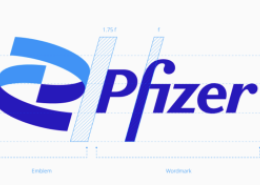Tafamidis Phase 3 Transthyretin Amyloid Cardiomyopathy (ATTR-ACT) Study Results Presented as Late-Breaking Data at the ESC Congress 2018
ATTR-ACT Showed that Tafamidis Significantly Reduced the Combination of All-cause Mortality and Cardiovascular-related Hospitalizations Data Showed a 30% Reduction in the Risk of Mortality and 32% Reduction in the Rate of Cardiovascular-related Hospitalizations with Tafamidis in People with Transthyretin Amyloid Cardiomyopathy versus Placebo
NEW YORK--(BUSINESS WIRE)--Pfizer Inc. (NYSE:PFE) announced today the primary results from the Tafamidis Phase 3 Transthyretin Cardiomyopathy (ATTR-ACT) study, which showed tafamidis significantly reduced the hierarchical combination of both all-cause mortality and frequency of cardiovascular-related hospitalizations compared to placebo over a 30-month period (P=0.0006) in patients with wild-type or variant (hereditary) transthyretin amyloid cardiomyopathy (ATTR-CM).1 ATTR-CM is a rare, fatal, and underdiagnosed condition associated with progressive heart failure for which there are no approved pharmacologic treatments.2,3
The late-breaking findings were presented during Hot Line Session 3 at the ESC Congress 2018 in Munich, Germany and simultaneously published online in the New England Journal of Medicine (NEJM).
“We believe the ATTR-ACT study findings bring us a significant step closer to our goal of providing an urgently needed therapy for a serious and often fatal disease,” said Brenda Cooperstone MD, Senior Vice President and Chief Development Officer, Rare Disease, Pfizer Global Product Development. “We look forward to continuing discussions with global regulatory authorities about the potential of tafamidis as a treatment option for people living with ATTR-CM.”
The ATTR-ACT study showed tafamidis significantly reduced all-cause mortality (29.5% vs. 42.9%; hazard ratio = 0.70, 95% confidence interval [CI] 0.51-0.96, P=0.0259) and cardiovascular-related hospitalizations (0.48 vs 0.70 annualized rate; relative risk ratio = 0.68, 95% CI 0.56-0.81, P0.0001), compared to placebo.1 This represents a 30% reduction in the risk of mortality and 32% reduction in the rate of cardiovascular-related hospitalization. The findings also showed a consistent directional mortality benefit of tafamidis across all sub-groups.1
Secondary study endpoints also showed tafamidis reduced the decline in the six minute walk test distance (P0.0001), a measure of functional capacity, and reduced the decline in aspects of quality of life measured by the Kansas City Cardiomyopathy Questionnaire – Overall Score (P0.0001), compared with placebo at Month 30.1 Tafamidis was also well tolerated, with an observed safety profile comparable to placebo.1
“ATTR-CM patients face a difficult diagnosis and treatment journey. By examining tafamidis in the ATTR-ACT trial, we were hoping the data for this oral agent would yield positive results for these patients and I am very pleased by the findings,” said Claudio Rapezzi MD, Director, Cardiology, School of Cardiovascular Diseases, University of Bologna, and ATTR-ACT study presenter at the ESC Congress 2018. “The ATTR-ACT data provide strong evidence that tafamidis improves survival, which could mean a significant advance for patients living with ATTR-CM today.”
The NEJM manuscript, titled “Tafamidis Treatment for Patients with Transthyretin Amyloid Cardiomyopathy,” will be published in the September 13 printed issue of NEJM.
In light of the seriousness of the disease and the lack of pharmacologic treatment options, Pfizer has established an expanded access treatment protocol to make tafamidis available to ATTR-CM patients who may benefit from treatment prior to regulatory approval. The expanded access treatment protocol is posted on clinicaltrials.gov (NCT02791230), and additional information about requesting access may be found at www.pfizercares.com. Access to these programs may vary by country; physicians may contact their local Pfizer Medical department for further information. Interested ATTR-CM patients should contact their local physician to discuss whether accessing tafamidis may be an appropriate option.
Tafamidis was granted Orphan Drug Designation for ATTR-CM in both the EU and US in 2012 and in Japan in 2018. In June 2017 and May 2018, respectively, the US Food and Drug Administration (FDA) granted tafamidis Fast Track and Breakthrough Therapy designations for ATTR-CM. Additionally, in March 2018, the Ministry of Labor Health and Welfare in Japan granted SAKIGAKE designation to tafamidis for this indication.
About the ATTR-ACT Study1
ATTR-ACT is a Phase 3 international, multicenter, double-blind, placebo-controlled, randomized, 3-arm clinical study in 441 patients with ATTR-CM that investigated the efficacy, safety, and tolerability of an oral daily dose of 20 mg or 80 mg tafamidis meglumine capsules compared to placebo. The study included both patients with variant (ATTRm), or hereditary, form of the disease, and those with wild-type (ATTRwt) form, which is not hereditary and may occur as people age. The primary analysis of the study, which compared a pooled tafamidis (80 mg and 20 mg) treatment group to placebo, was the hierarchical combination of all-cause mortality and frequency of cardiovascular-related hospitalizations over a 30-month period in patients with transthyretin amyloid cardiomyopathy.
For more information on the ATTR-ACT study, go to www.clinicaltrials.gov.
Tafamidis is an investigational treatment for transthyretin amyloid cardiomyopathy and is not approved for this indication.
About ATTR-CM
ATTR-CM is a rare, progressive, and underdiagnosed disease caused by destabilization of a transport protein called transthyretin, which is composed of 4 identical sub units (a tetramer).3 In ATTR-CM, heart failure occurs when unstable tetramers dissociate, resulting in misfolded proteins that aggregate into amyloid fibrils and deposit predominantly in the heart.3
Pfizer Rare Disease
Rare disease includes some of the most serious of all illnesses and impacts millions of patients worldwide,4 representing an opportunity to apply our knowledge and expertise to help make a significant impact on addressing unmet medical needs. The Pfizer focus on rare disease builds on more than two decades of experience, a dedicated research unit focusing on rare disease, and a global portfolio of multiple medicines within a number of disease areas of focus, including hematology, neuroscience, and inherited metabolic disorders.1
Pfizer Rare Disease combines pioneering science and deep understanding of how diseases work with insights from innovative strategic collaborations with academic researchers, patients, and other companies to deliver transformative treatments and solutions. We innovate every day leveraging our global footprint to accelerate the development and delivery of groundbreaking medicines and the hope of cures.
Click here to learn more about our Rare Disease portfolio and how we empower patients, engage communities in our clinical development programs, and support programs that heighten disease awareness.
Working together for a healthier world®
At Pfizer, we apply science and our global resources to bring therapies to people that extend and significantly improve their lives. We strive to set the standard for quality, safety and value in the discovery, development and manufacture of health care products. Our global portfolio includes medicines and vaccines as well as many of the world's best-known consumer health care products. Every day, Pfizer colleagues work across developed and emerging markets to advance wellness, prevention, treatments and cures that challenge the most feared diseases of our time. Consistent with our responsibility as one of the world's premier innovative biopharmaceutical companies, we collaborate with health care providers, governments and local communities to support and expand access to reliable, affordable health care around the world. For more than 150 years, we have worked to make a difference for all who rely on us. We routinely post information that may be important to investors on our website at www.pfizer.com. In addition, to learn more, please visit us on www.pfizer.com and follow us on Twitter at @Pfizer and @Pfizer_News, LinkedIn, YouTube and like us on Facebook at Facebook.com/Pfizer.
DISCLOSURE NOTICE: The information contained in this release is as of 5am EDT/11am CEST on August 27, 2018. Pfizer assumes no obligation to update forward-looking statements contained in this release as the result of new information or future events or developments.
This release contains forward-looking information about a potential indication for tafamidis for the treatment of transthyretin amyloid cardiomyopathy (the “Potential Indication”) and Pfizer’s rare disease portfolio, including their potential benefits, that involves substantial risks and uncertainties that could cause actual results to differ materially from those expressed or implied by such statements. Risks and uncertainties include, among other things, the uncertainties inherent in research and development, including, the ability to meet anticipated clinical trial commencement and completion dates and regulatory submission dates, as well as the possibility of unfavorable clinical trial results, including unfavorable new clinical data and additional analyses of existing clinical data; the risk that clinical trial data are subject to differing interpretations, and, even when we view data as sufficient to support the safety and/or effectiveness of a product candidate, regulatory authorities may not share our views and may require additional data or may deny approval altogether; whether regulatory authorities will be satisfied with the design of and results from our clinical studies; whether and when any new or supplemental drug applications may be filed in any jurisdictions for tafamidis for the Potential Indication; whether and when regulatory authorities in any such jurisdictions where applications for tafamidis may be pending (including the application pending with the FDA for the potential treatment of transthyretin familial amyloid polyneuropathy, for which the company received a complete response letter in 2012) or filed may approve any such applications, which will depend on the assessment by such regulatory authority of the benefit-risk profile suggested by the totality of the efficacy and safety information submitted, and, if approved, whether tafamidis will be commercially successful; decisions by regulatory authorities regarding labeling and other matters that could affect the availability or commercial potential of tafamidis, including for the Potential Indication; and competitive developments.
A further description of risks and uncertainties can be found in Pfizer’s Annual Report on Form 10-K for the fiscal year ended December 31, 2017 and in its subsequent reports on Form 10-Q, including in the sections thereof captioned “Risk Factors” and “Forward-Looking Information and Factors That May Affect Future Results”, as well as in its subsequent reports on Form 8-K, all of which are filed with the U.S. Securities and Exchange Commission and available at www.sec.gov and www.pfizer.com.
1 Data on file. Pfizer Inc. New York, NY.
2 Rapezzi C, Quarta CC, Riva L, et al. Transthyretin-related amyloidoses and the heart: a clinical overview. Nat Rev Cardiol. 2010;7:398-408.
3 Ando Y, Coelho T, Berk JL, et al. Guideline of transthyretin related hereditary amyloidosis for clinicians. Orphanet J Rare Dis. 2013;8:31.
4 Pfizer Inc. Rare disease. https://www.pfizer.com/health-wellness/disease-conditions/rare-diseases/areas-of-focus. Accessed August 9, 2018.
Pfizer Inc.
Media Relations:
Neha Wadhwa, 212-733-2835
[email protected]
or
Investors:
Chuck Triano, 212-733-3901
[email protected]








